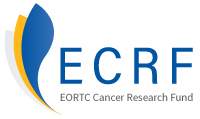EORTC’s STRASS II trial in retroperitoneal sarcoma receives support by the Anticancer Fund

About STRASS II Trial
EORTC’s STRASS II study is the first official trial looking into potential benefits of chemotherapy before surgery to improve disease control and survival in patients with retroperitoneal sarcoma, a rare and aggressive cancer with a low survival rate. STRASS II is a pan-European (13 countries) study with a transatlantic collaboration with multiple specialized sarcoma centers in Australia, Canada and North America.
This collaboration recently completed inclusion of the first randomized controlled trial in retroperitoneal sarcoma ever, the STRASS II trial examining the role of pre-operative radiotherapy in these tumours. In contrast to many other cancer types, an official trial looking into potential benefits of chemotherapy before surgery in these tumors has never been performed.
“With the EORTC we have the leading organisation in clinical research in Europe that works together with industry but also tries to address other patient-centred needs in a non-profit way. Especially these initiatives need encouragement”, explained Lydie Meheus, managing director of the Anticancer Fund.
“We are very pleased to partner with a like-minded organisation like the Anticancer Fund in addressing such an important question for patients with high-risk retroperitoneal sarcoma. For the EORTC, this marks the beginning of a successful partnership in tackling patient-centred questions where there is no industry involvement” says Dr. Denis Lacombe, Director General of the EORTC.
The primary objective to assess whether pre-operative chemotherapy, as an adjunct to curative-intent surgery, improves the prognosis of patients with high risk de-differentiated liposarcoma (DDLPS) and leiomyosarcoma (LMS) as measured by disease free survival. While the study’s secondary objectives include overall survival, recurrence free survival, distant metastases free survival; cumulative incidence of local recurrence & distant metastases, radiological response at time of surgery (post-C3), safety and toxicity of chemotherapy, health related quality of life of cancer patients. The study will start recruiting in 2020. Read more on the EORTC site.
About Anticancer Fund.
You can also help support EORTC’s game-changing clinical research to unleash scientific breakthrough and transform cancer patients’ lives. GET INVOLVED, or Make a Contribution Now.







Get Social